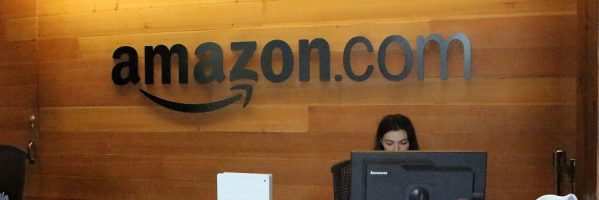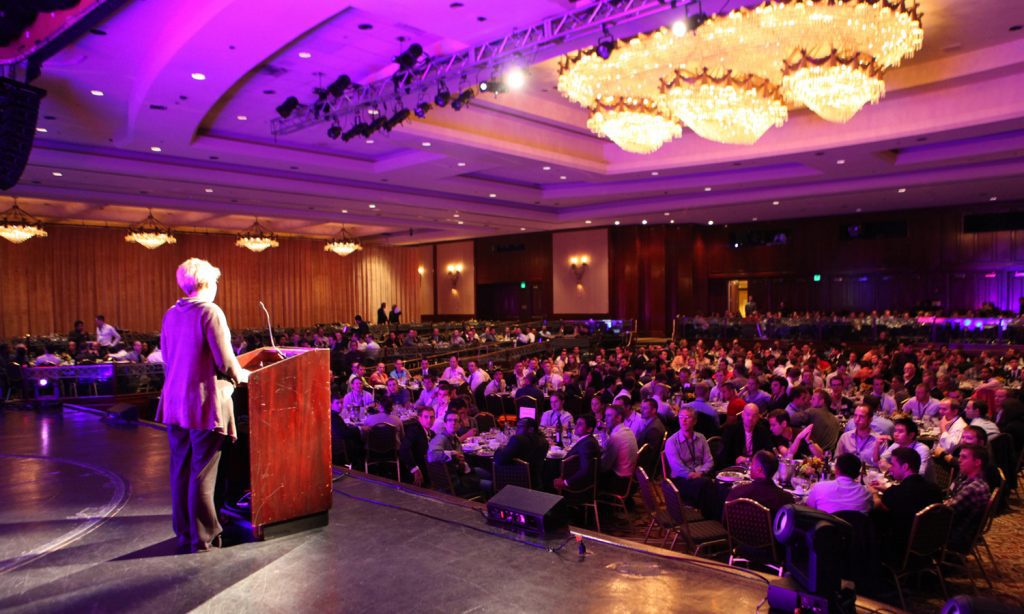Columbia Explores Power In News, and More – New York News

Let’s explore some of the most interesting stories that have emerged from New York City business schools this week.
Which News Outlets Have the Most Power? – Columbia Newsroom
Columbia Business School recently published research surveyed from 18 different countries, which uncovers that “television news is by far the most dominant and influential news source and the number of news sources that people rely upon and trust has a direct correlation with their income levels.”
CBS professor of business Andrea Prat explains, “Countries around the world are experiencing information inequality, with a distinct subset of the population depending on just one or two sources for news. In turn, this makes a certain set of large news organizations particularly powerful.”
The research points out several different, important conclusions:
- “Television-based organizations are the most powerful commercial news organizations.“
- “News sources that cater to information-poor audiences have greater ‘media power.’”
- “News consumption appears to be highly unequal.”
- “There is no evidence that public service broadcasting reduces information inequality.”
You can read more from the report here.
Toys ‘R’ Us is Just the Latest Nostalgic Retailer to Die – CNN Money
“Another one bites the dust,” writes CNN Money journalist Danielle Wiener-Bronner, remarking the full-scale closure of the once-iconic toy distribution empire Toys ‘R’ Us. Wiener-Bronner notes that the closure comes around six month after the chain filed for bankruptcy in fall of 2017, struggling for years to compete with other distribution chains like Wal-Mart and Amazon.

A photo of the grand opening of the Toys ‘R’ Us store in Manhattan. The 70-year-old former retail giant will soon be liquidating all of its U.S. and UK locations. Photo via AP/Richard Drew
Tulin Erdem, chair of NYU Stern‘s Marketing Department, spoke with Wiener-Bronner about the news, noting that while nostalgia can be very powerful when it comes to marketing, it just isn’t enough sometimes.
“You can have a comeback with [nostalgia], but you can’t sustain it,” she said.
While Toys ‘R’ Us stores will be effectively shutting down in the U.S. and UK, and upwards of 30,000 employers will lose their positions, the closure will never erase the sheer joy of driving a 2-seater child rider car in a department store. You can read the rest of the CNN Money report here.
Zarb Introduces New Co-Op MBA Program – Hofstra University Zarb School of Business
The Hofstra University Zarb School of Business recently announced a completely new full-time two-year Co-Op MBA, which includes a six-month paid co-op experience opportunity at a leading regionally based corporation.
“Hofstra University’s Co-Op MBA program provides students with an integrated educational and professional work experience in their field of study, allowing them to expand their experience and responsibility,” the school noted in a recent press release. “With New York City’s business community only 25 miles away, you’ll also have access to many non-classroom learning experiences.”
The program requires the completion of 38 to 45 credits, with classes available full-time, both day and night. The co-hort size will be between 25 and 30 students, offering 12 separate concentrations, including: accounting, business analytics, finance, and more.
Click here to learn more about the school’s newest program.
Here Are the Front Runners For Amazon’s New HQ2 Campus

Last week, 20 cities in the United States and Canada were informed by Amazon that their bid to host the tech giant’s second headquarters, HQ2, was still being considered. Continue reading…
Why Amazon Keeps Hiring MBAs

Editors Note: This article on Amazon hiring MBA students is an updated version of the original.
When thinking about the largest tech sector companies in the world, Apple, Microsoft, Facebook, Google, and Amazon are sure to top the list. Not only are these companies on the forefront of technological advancement in business and consumer electronics, they are also major players in the MBA job market.
Of all these notable heavyweights, Amazon is the biggest employer of graduates from elite business schools. According to the U.S. News & World Report’s top 20 rankings (from schools that release company-level hiring statistics), the e-commerce powerhouse hired more than twice as many top MBAs in 2016 as Microsoft, the next biggest tech employer. And with the upcoming development of HQ2, the company’s second headquarters, demand for MBA-level talent is sure to increase at the ever-expanding ecommerce giant.
Amazon—a company that offers online retail, cloud computing, mobile devices and media streaming services—has plenty of workforce needs. According to its annual report, Amazon has 230,800 full- and part-time employees. According to QZ, the company currently lists almost 17,000 open jobs among its corporate positions.
Why Is Amazon Hiring MBA Students?
Across all industries, Amazon is the fifth-largest employer of graduating MBAs, according to data on more than 200 full-time MBA programs collected by Bloomberg Businessweek. Amazon is also No. 4 on the 2013 Universum list of most popular MBA employers, up from No. 8 in 2011 and No. 6 in 2012.
Why the focus on hiring top MBA talent? Miriam Park, director of university programs at Amazon, told the Financial Times:

Miriam Park
“The Amazon recruitment process is designed to ensure we hire top candidates with high-growth potential whatever their background may be. As part of this we recruit current MBA students and MBA alumni for permanent and internship opportunities worldwide and see MBAs as an important part of our leadership development. We value people who can balance long-term strategic thinking with tactical execution, and who have the ability to make data-driven decisions.”
She added:
“We value MBAs for, in many cases, the global approach that they can bring to the business with many candidates having worked and studied in more than one country. Their range of experience and variety of backgrounds is invaluable in bringing a different way of looking at our business. We also value the analytical skills that they develop through their MBA. In fact, many of our senior leaders started at Amazon after completing MBAs.”
Which Potential Paths Leads to Employment at Amazon?
The best way that an MBA can get in with Amazon and end up with a job is to apply for an internship. Amazon also offers an MBA program that intends to create a pipeline from top business schools to actual jobs within the organization. Amazon offers several full-time opportunities to MBA interns. Each role lasts 11 to 12 weeks and provides students the opportunity to complete function-specific projects.
The company also offers a robust 8 to 12-week summer MBA internship that gives participants the opportunity to hone their decision-making ability in real-life consumer, finance, HR, technology businesses and operations environments. According to CNNMoney, Amazon’s summer internships host more than 170 interns from more than two dozen business schools each year.
What Kind of Jobs Can I Get at Amazon with an MBA?
As CNNMoney outlines, MBAs at Amazon may end up in any number of roles, whether it’s launching new products, finding ways to optimize the customer experience or evaluating the company’s future business investments.
Park discussed specific jobs that are offered to MBAs with the Financial Times. In terms of potential career options for MBAs at Amazon, she outlined participation in the Consumer Leadership Development (CLD) program, Pathways program for operations managers and Senior Financial Analyst (SFA) development program, as well as the role of senior product manager.
CLD is a three-year leadership development program in which MBAs rotate through two different roles from a choice of areas such as vendor management, in-stock management, marketing management, merchant management and/or retail product management. The goal of the program is to provide MBAs with a path to leadership roles at Amazon. Participants develop an understanding of the key roles within retail and become effective managers.
Pathways is a three-year, field-based program based out of warehousing and shipping centers for merchant goods and customer service sites. This is a position in which MBAs will have to develop leadership ability to complete fulfillment center and customer service operations.
SFA is a three-year leadership development program in which senior financial analysts are expected to evaluate and quantify new business ideas and perform data-intensive analyses to improve the way Amazon serves its customers.
Senior product managers work with technology teams to drive ideas from conception to execution, develop business models and marketing plans, define and analyze success metrics, manage strategic projects and own the product end to end. This job offers an inside track to future roles as general managers responsible for running large business segments.
Hot Jobs for MBAs: Becoming a Pricing Analyst

MBA graduates looking to apply their skills to a fast-growing and high-paying career may be interested in pursuing a role in Pricing Analysis. Named among the 100 best jobs in America by CNN, working as a Pricing Analyst is a perfect way for an MBA graduate to make use of their strong education combining skills in marketing, finance, and analytics.
With a predicted 10-year job growth of 41.2 percent and roughly 280,000 total jobs available, business students who think they might be interested this fast-growing career can start preparing while still in school through specialized study in marketing or finance. Armed with the special skills in data analysis in addition to the strong business background of an MBA, students looking to enter the field after graduation will have a competitive advantage as they begin their career.
We’ve rounded up the most important things to know about a career in Pricing Analysis to help you decide if it’s the right role for you.
What is a Pricing Analyst?
A company’s pricing analyst is responsible for figuring out the appropriate price for a business to place on a product or service. Using a variety of data and different metrics, the Pricing Analyst will determine the perfect price that will both appeal to consumers and produce an appropriate profit for the company.
Pricing Analysts must be able to track marketplace trends and implement a strategy that will benefit both the company and consumer. Someone in this role must be able to effectively communicate to a number of other departments such as supply chain, sales, marketing, finance, and be able to work with these groups in making pricing recommendations and decisions based on their analysis.
Pricing Analysts may be needed at wide variety of companies and organizations, ranging from construction companies, colleges and universities, banks and financial institutions, pharmaceutical companies, and more.
What Skills Does a Pricing Analyst Need?
Those who succeed in the role of Pricing Analyst typically have strong skills in mathematics, analytical thinking and problem solving. It is also important that Pricing Analysts are able to effectively communicate, as they are often required to explain their research and analysis to others in order to make important decisions.
Other skills employers may seek in a Pricing Analyst may be:
- An interest and skill working with numbers and data.
- Being a detail oriented and proactive worker.
- Have the ability to work with minimal supervision.
- Experience in back-office and billing systems and database management programs,
Pricing Analyst Salary
Pricing Analyst salaries, according to PayScale, may vary according to a number of factors, such as education, terms of the job, and type of employer. On average, Pricing Analysts can earn anywhere from $52,000-61,000 depending on their level of experience. In cities like New York and Boston, that number is slightly higher.
A recent study from Deloitte found even more impressive figures: 62 percent of respondents in a survey of pricing professionals reported salaries of greater than $100,000 and 83 percent of respondents said they were also eligible for an annual bonus.
EVEN MORE MBA JOBS: Verizon is on the Lookout for MBA Students and Grads
MBAs For Pricing Analysts
While most MBA programs do not offer a direct concentration in pricing analysis, a number of programs still provide specialized pricing education through other departments, like finance and business analytics. Below are just a few examples of pricing-related courses available at some of the top MBA programs in the country:
-
Scheller College of Business – Georgia Institute of Technology
The Scheller College of Business offers a course in pricing strategy as part of their Business Analytics MBA concentration. The course, marketing Analytics and Pricing Strategy, helps students gain skills in making effective pricing decisions through the understanding of important economic and analytical concepts associated with customer behavior and competition.
-
The Wharton School – University of Pennsylvania
FNCE717, or Financial Derivatives, at the Wharton School focuses students on making strategic corporate decisions, particularly when it comes to pricing. Students will learn several different approaches to pricing and how to apply such skills for investment and risk-management.
-
Rutgers School of Business, Newark and New Brunswick
The MBA program at Rutgers’ Newark and New Brunswick location offers a class in Supply Chain Pricing Strategy. The course recognizes the importance of pricing in driving profits and the extreme negative impact poor pricing decisions can have. Students will learn how to approach pricing from both a strategic and tactical level and be able to apply it to a number of fields and industries.
Do You Actually Need an MBA for the Job?
While an MBA is not necessarily a requirement of all Pricing Analyst jobs, it is by far the most common degree held by those in this role. According to the aforementioned Deloitte survey, 43 percent of respondents held MBA degrees, while just 26 percent—the next highest percentage—held undergraduate degrees in business. Earning an MBA and demonstrating specialized coursework in pricing will give those in the field a competitive edge and open the door to higher level management positions in the field.
Our Favorite MBA Recruiters: Facebook

These days, it seems like everyone and their mother is on Facebook—no, really, your mom sent me a friend request last week. Your family vacation looked like a blast! As more and more people subscribe to the undisputed king of social media, Facebook seems to hire more and more MBAs to continue to move the company forward into the future. Continue reading…
This Year’s Reaching Out MBA LGBTQ Conference Arrives in Boston

The ROMBA LGBTQ MBA and Graduate Student Conference, the largest annual gathering of LGBTQ graduate school students in the world, takes place Boston this week, running from October 12-14. It is presented by Reaching Out MBA (ROMBA), a nonprofit organization dedicated to helping create the next generation of out business leaders by educating, inspiring, and connecting the student and alumni LGBTQ MBA and graduate studies communities.
The 20th annual three-day conference offers thousands of attendees an incredibly unique opportunity to connect and expand their careers with a close-knit and inclusive community. Included in the ever-expanding event are multiple case competitions, high-profile keynote speakers, information chats with MBA programs, the first inaugural “Professional Day” session and much, much more.
Day One
Those in attendance on Thursday, Oct. 12, will have the chance to join the first of two Boston LGBTQ MBA Treks. Through a competitive application process, 20 students are selected to join each of the treks. One trek will make stops at two of the city’s more prominent biotech companies and the other will visit two leading management consulting firms.
Throughout the first day, which runs from 2 to 11 p.m. at the Boston Seaport World Trade Center, corporate partners are invited to meet with Reaching Out’s staff and Board on future ROMBA events, both in the United States and in international locations like Brazil and China. An Out Women in Business event will run from 3 to 7 p.m., featuring “short-form talks, a panel discussion, and structured workshop, designed to bring together our LGBTQ attendees and to focus on issues that specifically apply to and interest them.” It will be followed by a formal reception.
As well, the first day will feature multiple panel events designed to help attendees navigate the recruiting process. These panels will address potential first-year grad school anxiety, how companies can appropriately measure and expand inclusive practices, interview assistance, and more. The first night concludes with the aforementioned Out Women In Business ceremony, a ceremony for active and previously enrolled military veterans, and the invitation-only ROMBA Fellowship Recipient Reception.
Day Two
Day Two, Oct. 13, begins with a breakfast and opening keynote panel, featuring three of the business world’s most prominent LGBTQ C-suite members: Jim Fitterling, president & chief operating officer of Dow Chemical; Beth Ford, executive vice president and chief operating officer of Land O’ Lakes; and Jan Siegmund, ADP chief financial officer.
Several informative industry panels will take place throughout Day Two, covering topics such as coming out and thriving in the workplace, handling big data, inclusive networking, diversity in the tech industry, and much more. Later that afternoon, McKinsey Global Management Partner Dominic Barton and United Therapeutics’ CEO Martine Rothblatt will speak at the Leadership Lunch, sponsored by McKinsey and Co.

The 2015 ROMBA Conference
The centerpiece of Day Two is the three-hour Career Expo, which will feature nearly 100 of the world’s largest companies looking to recruit the best and brightest of LGBTQ graduate talent. At the same time, ROMBA will host an Entrepreneurship Expert Zone, which allows entrepreneurs to present their startup ideas to potential venture capitalist partners.
The night will conclude with the LGBTQ MBAs of Color Reception, taking place at from 6 to 7 p.m., followed by a pre-entertainment networking reception, and an “Evening With” popular LGBTQ comedian Margaret Cho at 9 p.m.
Day Three
Day Three will perhaps mark the most important of the conference as it relates to earning admission into the country’s best MBA programs. At 10 a.m., more than 40 business schools will join the Pre-MBA Admission Expo. The event “will have a mix of admissions officers, LGBTQ MBA alumni, and current LGBTQ MBA students on-site to share information about their programs & experiences on campus with our pre-MBA attendees.”
The afternoon will be filled with pre-MBA sessions on why some students may want to consider dual-degree programs, regional networking, alumni discussions, and more. At 5 p.m., many schools will host their own private sessions with current students, alumni, and administrative officials..
The final night culminates with the 7 p.m. ROMBA Gala Reception and the sold out GALA Dinner, featuring CNN journalist Anderson Cooper, the conference’s keynote speaker.
To find out how to register for this weekend’s event, along with a more in depth look at the three-day schedule, head over to the ROMBA official website.
